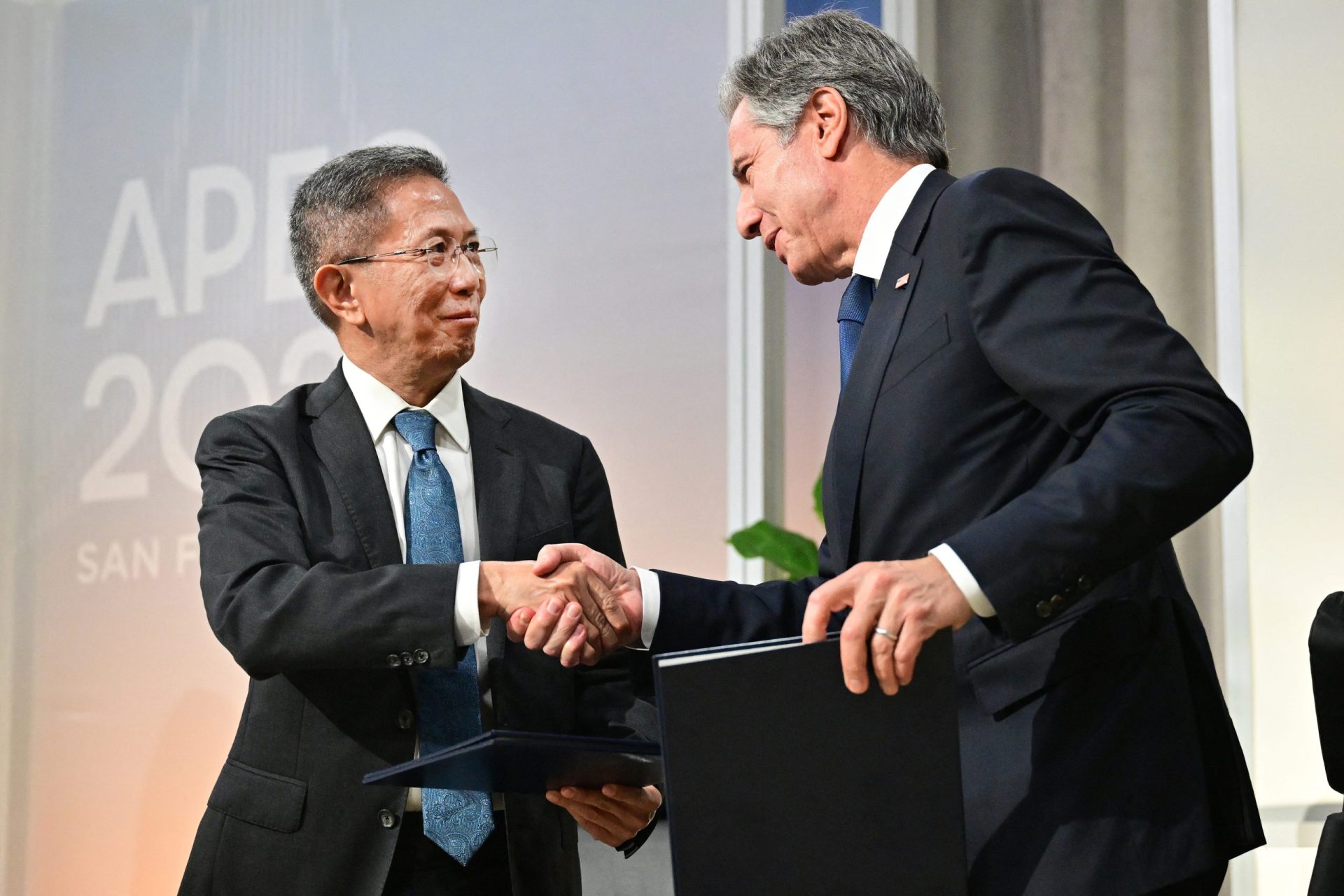The Power for People Coalition (P4P) on Monday lambasted the 123 Agreement, a landmark nuclear deal, inked between the United States and the Philippines.
In a statement, P4P convenor Gerry Arances said the Philippines, which he said is in a state of the climate crisis, “needs energy that is carbon-free, affordable, and sustainable, which only renewable energy can meet”.
Arances accused the Department of Energy of “finding more energy sources that are expensive, dangerous, and imported” instead of “planning to decarbonize the grid”.
On November 17, Energy Secretary Raphael Lotilla signed the 123 Agreement, or the “Agreement for Cooperation Concerning Peaceful Uses of Nuclear Energy,” with US Secretary of State Anthony Blinken.
During the signing ceremony, President Ferdinand Marcos Jr said his administration sees “nuclear energy becoming a part of the Philippine energy mix by 2032”.
“We would be more than happy to pursue this path with the United States as one of our partners,” he added.
A 123 agreement, named after Section 123 of the US Atomic Energy Act, enables the transfer of nuclear expertise, equipment, and materials for “peaceful purposes” from the United States to a partner country with which it has a signed peaceful nuclear cooperation agreement.
According to P4P, the Philippine government has incorporated plans for integrating nuclear energy into the national energy mix since the Duterte administration, aiming to diversify and strengthen the country’s energy resources to meet increasing demands.
Arances, however, said the country “would have benefited more” if the United States would bring in the means and resources to transition the Philippines to 100% renewable energy.
“Even a country like Japan, which has operated nuclear power plants for decades, can still suffer from a nuclear accident. What more the Philippines, where power companies can’t even operate coal-fired power plants without them breaking down?” he said.
Avril de Torres, Deputy Executive Director of the Center for Energy, Ecology, and Development (CEED), expressed confusion about the government’s recent actions.
She referred to a recent comprehensive modeling by Climate Analytics, suggesting that the Philippines could achieve a 100% renewable energy transition by 2030. This transition would address greenhouse gas emissions, create jobs, and reduce electricity prices.
“We are at a loss to explain the move of the government in the other direction,” she said.







